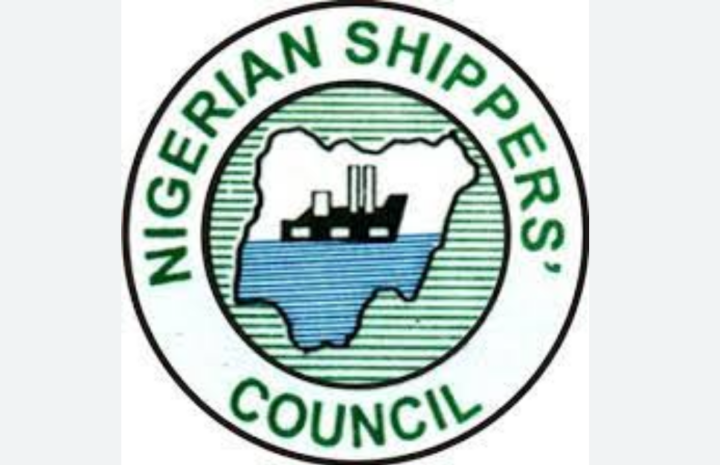Nigeria’s Nigerian Shippers’ Council (NSC) has pledged to dramatically reduce cargo clearance timelines in a bid to make the nation’s ports more competitive and efficient. At the centre of the initiative is a renewed commitment to automation, stakeholder coordination, and regulatory reform—all aimed at slashing current delays and boosting trade facilitation.
Speaking after a strategic meeting with key stakeholders across the maritime sector—including the Nigerian Customs Service (NCS), terminal operators, and freight forwarding associations—NSC’s leadership highlighted the urgent need to eliminate manual bottlenecks that have long plagued cargo handling processes. According to Executive Secretary Hassan Bello, the country cannot match other regional ports unless it modernizes clearance systems and reduces bureaucratic hold-ups.

“The path to seamless ports begins with digitization and standardized procedures,” Bello stated, commending the NCS for its strides in automating its operations. He emphasized the need for all other port actors to follow suit. He added that prompt examination of containers, reduced human intervention, and streamlined government agency procedures at terminals were key factors affecting cargo movement timelines.
Representatives from influential industry groups—including the National Association of Government Approved Freight Forwarders (NAGAFF) and the Association of Nigerian Licensed Customs Agents (ANLCA)—support the NSC’s push. Their involvement reflects a consensus among trade operators that procedural inefficiencies—particularly those that extend beyond the 48-hour target—must be resolved through digital transformation and cooperative policy frameworks.
The meeting unpacked persistent challenges: extended truck and container waiting times, delayed intervention by inspecting bodies, redundant documentation demands, and inconsistent operating standards across ports. Addressing these, NSC officials declared intentions to drive adherence to one-stop clearance channels, aligned standard operating procedures, and enforce the completion of all logistics activities within a strict 48-hour window.
Central to the NSC’s reform agenda is the implementation of the International Cargo Tracking Note (ICTN), set to roll out in the second quarter of 2025. This system will assign a unique digital identifier to each shipment, enhancing traceability, reducing smuggling and undervaluation risks, and improving risk-weighted customs processing. According to the NSC, the ICTN is expected to not only enhance security but also support revenue assurance and faster turnarounds.
NSC Executive Secretary Pius Akutah stated that ICTN aligns with international trade facilitation expectations, noting that nations successfully integrating similar systems have seen measurable declines in cargo dwell time and demurrage charges. The Council projects recovery of significant revenue and improved trade compliance once the ICTN is fully operational.
NSC’s talk of accelerating cargo clearance emerges at a time when Nigeria has been losing an estimated $500 million annually due to implementation delays of cargo tracking mechanisms. Stakeholders stress that minimizing such losses and optimizing port efficiency is critical to reviving Nigeria’s standing in regional logistics.
Shippers’ Council strategy extends beyond ICTN. Officials have called for broader digital transformation, including adoption of a Port Community System (PCS) to allow real-time data-sharing among government agencies. They advocate for leveraging blockchain, analytics, and cloud-based platforms to reduce manual touchpoints, increase transparency, and streamline service delivery at seaports.
To support implementation, the NSC is rolling out a mandatory online registration system for port service providers. This system aims to standardize access, vet participants, and ensure regulatory compliance while enabling a smoother audit trail for maritime operators.
Experts involved in capacity-building also underscore the need for ongoing training of staff across agencies. From customs officers to terminal operators and inspection teams, enhancing digital literacy and operational governance is seen as foundational to ensuring consistent cargo movement standards.
Despite the optimism, industry associations warn against replicating past mistakes. Freight forwarders have expressed concerns that new systems, if not properly phased in, could create temporary delays or stifle business flows. To avert this, the NSC has committed to promoting pilot runs, phased implementation, and extensive stakeholder sensitization before scaling up interventions.
Beyond technical reform, the NSC stressed the importance of multi-agency cooperation. Port efficiency, they say, hinges on coordinated action by the Customs Service, Nigerian Ports Authority, terminal operators, freight agents, government inspection bodies, and security agencies working under shared performance frameworks.
Trade economists say that achieving 24‑ to 48‑hour cargo clearance—not just in theory but in practice—can significantly reduce logistics costs, enhance port competitiveness, and prevent cargo diversion to neighbouring ports in Togo or Ghana. Port dwell time at Nigerian seaports has previously ranged from two to three weeks, a delay that hampers export activity and discourages new investment.
If NSC implements its agenda effectively, the shift could translate into substantial gains—reduced demurrage costs, increased cargo throughput, improved investor perceptions, and integration with broader trade treaties such as the African Continental Free Trade Area (AfCFTA).
In closing, the Nigerian Shippers’ Council’s push to overhaul clearance procedures, enforce digital mandates, and synchronize port stakeholders represents a pivotal moment in trade reform. Rapid cargo clearance has long eluded the country’s maritime sector—but with automation, stronger regulation, and unified systems, Nigeria may finally be on the trajectory toward efficient, competitive seaports.
Support InfoStride News' Credible Journalism: Only credible journalism can guarantee a fair, accountable and transparent society, including democracy and government. It involves a lot of efforts and money. We need your support. Click here to Donate
